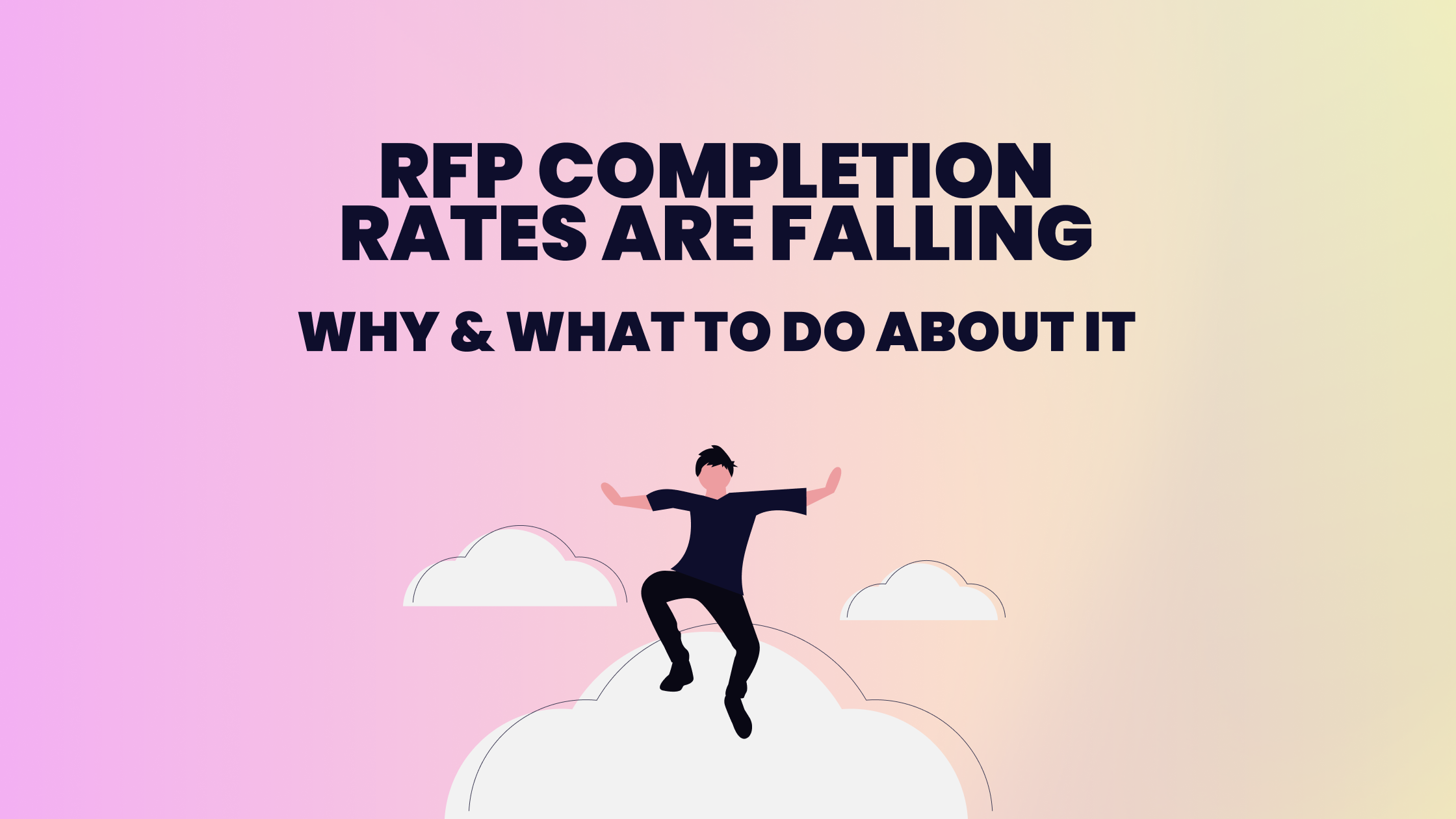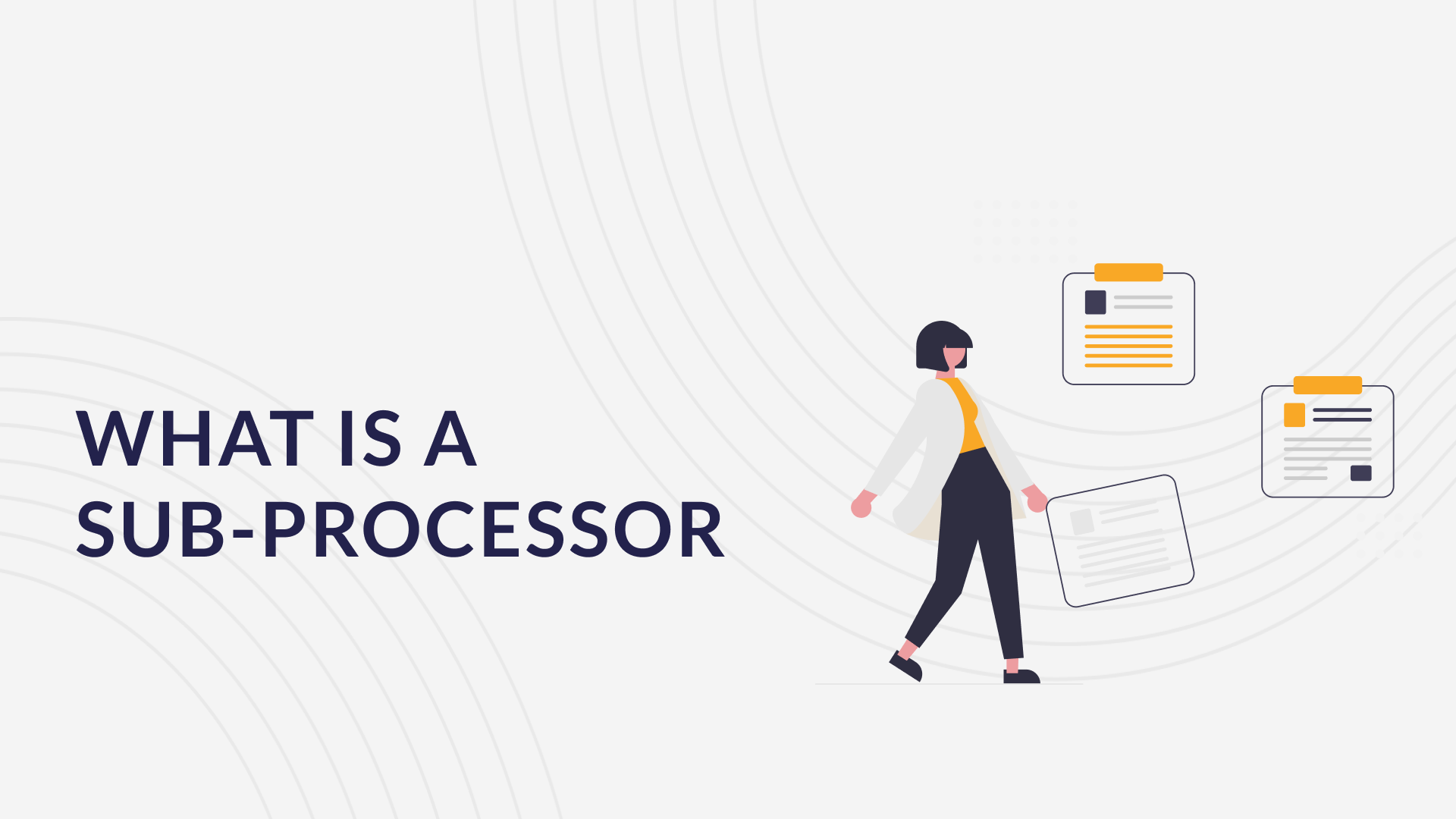Businesses today rely on specialized platforms to streamline response processes, maintain compliance, and boost efficiency. If they do not use these tools they’ll likely face issues such as slow deals, tied up internal teams, and often require repeating the same information in slightly different ways.
That’s why many companies start with an RFP tool like Loopio. It helps manage the flow of questionnaires - but it’s not always built to handle the range of formats, question types, and export requirements that modern RFP management demand.
If you’ve ever wrestled with:
- Autofill answers that don’t quite fit the question
- Security portals that block automation tools
- Knowledge bases that are a pain to maintain
- Sales teams constantly chasing for updates
- Manually sending security docs alongside questionnaires
…it might be time for something more purpose-built.
In this article, we’re looking at Vera plus four other Loopio alternatives that focus specifically on automating your RFP issues.
Loopio comparison: Vera
- AI-powered automation
Vera is purpose-built for security, sales, and compliance teams that want to reduce the time spent on repetitive questionnaires. Unlike general RFP tools, Vera uses advanced AI to help understand and write quality RFP responses - it understands the intent behind questions, not just keywords, This has led to 98% accuracy on automated responses. Vera’s AI-powered automation continues to improve, with weekly updates enhancing both the AI and platform.
Loopio is built for document creation and workflow management, making it well-suited to large enterprises. Its strength lies in task assignment and tracking, giving stakeholders clear visibility into progress and ownership for each question.
Loopio has limited file compatibility - for example, it struggles with multi-tab Excel sheets and multi-select answers - leading to potential gaps in responses. Exporting is also restrictive, often requiring users to adjust their RFP format to fit Loopio’s system, rather than the platform adapting to theirs. In contrast, Vera handles these tasks with less manual effort. Finally, Loopio’s limited AI capabilities make it difficult to offer prompts such as adjusting tone, shortening answers, or citing sources - resulting in a less conversational and flexible experience than Vera.
Knowledge base management
Both platforms rely on a knowledge base to store past responses and critical company information.The difference? Vera’s AI flags outdated or conflicting answers automatically, so your content stays fresh with less manual effort. Loopio relies on scheduled review cycles, which can result in outdated information slipping through unnoticed. It also depends heavily on keyword searches and manual tagging to find relevant information - adding extra steps and requiring more manual input to maintain accuracy and context.
Integration & setup
Vera integrates directly with Slack, Microsoft Office, Google Workspace, and leading CRM platforms making it easy to deploy quickly and complete RFPs faster. Loopio offers fewer integration options and recently ended its partnership with Salesforce, limiting connectivity with key tools. It’s also known for lengthy onboarding timelines often ranging from weeks to several months for larger enterprises.
Compliance & trust management
Vera includes a built-in Trust Center, so you can securely share compliance documents, policies, and certifications with prospects — without needing to buy a separate tool. It helps you build trust by making key security information easily accessible and always up to date.
Loopio doesn’t offer a trust portal — so you're left relying on manual document sharing and internal reviews to keep customers informed.
Loopio pricing
Loopio primarily caters to enterprises with less flexibility in pricing models. The model is more focussed around large enterprises with average costs over $10,000 and no trial periods. Vera is a more adaptable and budget-friendly choice for organizations looking to optimize their RFP processes without overspending. Vera also offers a free 14 day trial to ensure the platform is right for your business.
Loopio competitors - 4 other options
Responsive (formerly RFPIO)
Responsive is a response management platform designed to automate RFPs, RFIs, and security questionnaires - helping teams manage responses, collaborate efficiently, and accelerate the proposal process.
- Questionnaire auto-fill
- Collaboration tools
- Support for complex formatting, tables, and images
Responsive is best suited for large enterprises that need a single platform to manage a wide range of requests. It excels at workflow management and team coordination, making it a strong choice for complex, cross-functional RFP processes. However, it falls short on automation -relying on manual knowledge base updates, offering limited AI capabilities, and lacking automated compliance monitoring. With fewer supported file types, higher pricing, and longer setup times, it may not be ideal for teams prioritising speed and flexibility.
Vanta
Known for compliance automation (such as SOC 2), Vanta helps businesses stay compliant by automating monitoring and audits—reducing manual effort and improving risk management. However, its ability to handle RFPs with AI-generated answers is limited, often producing low-quality or unrealistic content that requires significant manual rewriting.
- Answer common security questions automatically
- Share documents through a centralized portal
- Manage compliance tasks alongside security reviews
Vanta’s RFP capabilities are limited, as it primarily relies on internal policy documents and doesn’t effectively ingest past questionnaires. Its AI responses often lack context only focussing on security & compliance and require manual review due to inaccuracy. Users have also reported issues with file formatting, particularly when uploading multi-tab documents or anything outside of a simple “one question, one answer” structure.
Safebase
Safebase, now owned by Drata, is positioned as a competitor to Vanta in the trust and compliance automation space. It offers a branded trust portal for sharing security documentation with prospects and customers, but its RFP capabilities are notably limited.
- Share security documents through a branded trust portal
- 24/7 automated security monitoring
- Automated evidence collection
Safebase isn’t designed for RFP workflows. It doesn’t support using policies or documents as source material - only fixed question-and-answer pairs limiting flexibility and automation. Users report that answer quality can be overly optimistic and often requires rewriting. At around $5,000 for the trust portal alone, it’s an expensive option that lacks the depth needed for scalable RFP automation.
Conveyor
Conveyor is a security review automation platform that streamlines questionnaire responses, trust management, and document sharing - helping teams complete security reviews faster and reduce manual effort.
Key features include:
- AI-generated answers trained on security content
- Browser extension for answering in portal
- Integrated trust center for sharing compliance docs
- Visual status tracking with a kanban board
- Knowledge base updates built into your workflow
Conveyor isn’t well-suited for RFPs, with users noting that its search function often misses the most relevant answers - making it harder to find and reuse accurate content. Other drawbacks include a lengthy implementation process, starting costs that are double Vera’s, and a knowledge base that requires manual updates.
Want to test our RFP response solution - without the risk and the headache?
Book a demo to see Vera in action.
Loopio alternatives – FAQs
Q: Why look for a Loopio alternative?
While Loopio is a solid RFP management tool, it struggles with automation, manual knowledge base updates, and lengthy onboarding - making it less suited for teams dealing with complex security questionnaires or compliance-heavy workflows.
Q: What makes Vera different from Loopio and other alternatives?
Vera is built specifically for security and compliance teams. Its AI automates responses with 98% accuracy, updates your knowledge base automatically, and includes a built-in trust portal - saving time and reducing manual effort.
Q: Are tools like Hypercomply, Vanta, and Conveyor better for security questionnaires?
Each tool has strengths, but many (like Hypercomply, Vanta, and Conveyor) still require manual updates, have longer setup times, or higher costs. Vera stands out for its combination of speed, automation, and cost efficiency.
Q: How quickly can I get started with Vera?
Vera can be fully implemented in just a couple of hours. Most competitors take weeks, meaning Vera delivers value faster.



%20-%202025-06-11T165540.999.png)